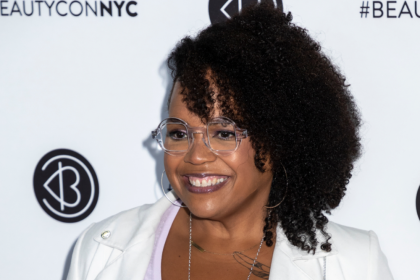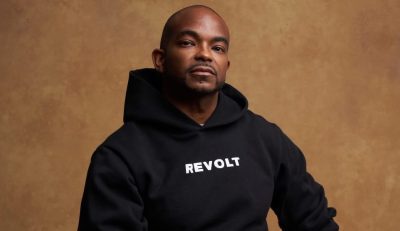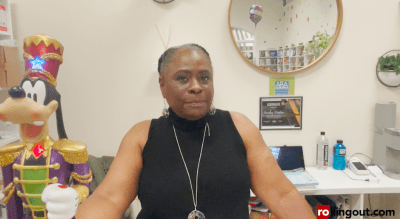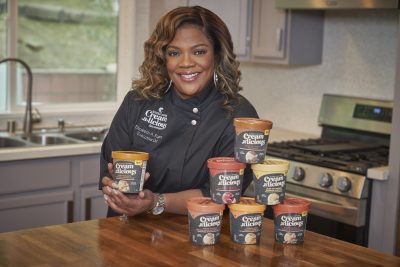
The Black funeral home business has always been an important institution in the community. There was a time when Blacks were refused the services of a White-owned funeral home because of racial prejudice. This gave the Black mortician an important role in the now multibillion-dollar industry and spawned many wealthy morticians.
One funeral home in particular that should be noted is Woody Home for Services in Orange, New Jersey. The business was founded in 1913 by Mary Colson Woody, a native of Virginia who migrated North with her husband. Woody had a degree in nursing and along with her husband first opened a funeral home in Newark. The business grew so successful that she opened her own funeral home in Orange. Woody was the first woman licensed as a funeral director in New Jersey at the time. She was very active in her community and also cared for elderly Black women who had no family. Her care extended to the personal embalming and dressing of these women because they had never let a man see them naked other than their husbands. Over the years, she was a member of the New Jersey NAACP and the Urban League until her death in 1966. Many Black morticians in the Essex County area got their training at Woody’s under her direction.
The business is now operated by Ida Woody and her business partner, Sharon White Graddy. Both women are following in the tradition of their fathers Thomas Colson Woody and Clifford R. White, who were also partners at Woody Home for Services.
Rolling out asked Sharon Graddy a few questions about the funeral home business.
What is the role of a funeral director?
Aside from arranging and facilitating the logistics surrounding a loved one’s passing, the funeral director provides compassion and understanding to a family during a time of need. As professionals we explain and offer a wide range of alternatives regarding death care.
How would you describe your brand of funeral service?
Our “brand” of funeral service is fairly traditional. However we strive to meet the challenges and desires of families by being aware of and accommodating to families as they relate to current trends.
What things should a family consider when selecting a funeral director?
Relatives may want to consider their family history with an establishment as well as references from other families. In addition consideration should be given to the geographical location and proximity to next of kin.
What is the most important paperwork every family should be prepared to bring to their family funeral consultation?
- Vital statistics (Social Security number, date of birth, parent’s names, etc).
- Method of payment (insurance documents)
- Military information
How can families benefit from planning in advance with a local funeral home?
The benefit of pre-planning a funeral is that relatives can get an idea of what their loved one’s final wish is. In addition, family members can give vital statistics as well as receive pricing information.
What are your three top goals when meeting with a family?
My top three goals are to offer comfort and guidance to the family as they move through a very difficult period. I also think it is vitally important to present practical and fiscally prudent offerings based on their (and the decedent’s) desires and capabilities. The third goal is to make sure our families know that we are here to help with “post funeral” issues that arise—both emotional and procedural.
What are the top two mistakes families make when preparing a funeral for a family member?
Some families overextend themselves financially.
How has the funeral business changed over the last decade?
There has been a sharp rise in cremation. Many families do not want a “traditional service.” They may opt not to have viewing. Many times, memorial services may be held at places other than churches or funeral homes (restaurants, homes, etc.). The “automatic” use of limousines has also decreased. The use of social media has lessened the use of print media in the announcement of deaths.
What are the advantages of a chapel funeral or graveside funeral and who should consider each? Who are the best candidates for each?
There is no real advantage of having a chapel service (over a church service). Graveside services do not usually entail viewing of the remains. If the person is “not viewable” or there are very few survivors or friends, a family may want to consider an intimate chapel service or graveside services.
How do you approach celebrity funerals or a famous individual’s funeral given the demands of social media and media outlets’ desire to invade privacy?
In such a situation we “follow the family’s lead.” As with all of our services, we use the utmost discretion when conducting services. Phone numbers and addresses are not given. In all other matters, permission must be obtained from the family for dissemination of any information other than funeral service information.
Why did you select the funeral business as a career?
For both myself and my partner the funeral business “selected us.” Our fathers were funeral directors.
Describe three career paths available for young adults who choose the funeral business.
A young person should complete college (preferably a four-year degree), with emphasis on the hard sciences. Each state dictates the specific requirements for obtaining a license. They should also take psychology, political science and accounting classes if possible.
Describe the 24-hour nature of the business?
As we all know, death occurs at any hour and any day. As professionals, funeral directors know they may receive a death call at any time. It is our job to compassionately comfort as well as respond to “the call.” If a person passes away at a home or nursing home it will be necessary to go to that entity right away.
Our community’s pain comes to your door; we would like to know how you feel handling family’s arrangements for a teens killed by violence.
No matter the circumstance, a young person’s death is particularly gripping and tragic. A 16-year-old dies of cancer, a 9-year-old gets hit by a car, a 12-year-old gets murdered … a funeral director, like any other person, is devastated. As the child of a funeral director, I always knew when a young person would die by how my father acted when he came home. The most difficult task when handling a funeral of a teenager killed by violence (or a young person in general) is imparting compassion and comfort without losing control of your own emotions.
What are the main contributors to teen murder victims that find their way to your funeral home doorstep?
I believe the main contributors are retaliation (gang or otherwise) and robbery.
What could people in our community do to avoid premature death?
As a community, I think more robust and vital programs should be instituted to engage our youth. Parents need to be educated on how to provide structure and a sense of purpose for their children/teens.
What counseling services do you offer families who are grieving the death of a family member?
We usually suggest programs offered through our local hospital. In addition our county (Essex County, NJ) provides a variety of services as do organizations like the American Cancer Society, etc.
How do you prepare for the funerals of gang members?
Luckily, we have not had much experience in doing so. When that occasion has arisen, the police usually involve themselves for the protection of the family as well as our employees and our facility.
Funeral directors are on reality TV now. What are your thoughts on the idea of televising the industry?
I think it is awful and degrades the profession.
How has reconstruction of faces from crimes and suicide benefited from more makeup artists and new technology?
Even though there may be a wider selection of products, funeral directors have long since been schooled on restorative art as it relates to the appearance of the deceased. Mandated courses in anatomy are the bedrock of successful reconstruction. While technology may help, efforts will be unsuccessful if the director is not competent in his/her knowledge of human structural composition.
What annual event or community organizations do you participate with or facilitate?
As a funeral home, our establishment supports many church and school-related events within our community. We sponsor our local drill team as well as sports and academic endeavors. Members of our staff are very involved in church activities and “Anniversaries.” We support and are members of our local NAACP as well as our state and local funeral directors association. There is also a community organization named for our founding funeral director.
Visit Woody Home for Services at 160 Oakwood Avenue, Orange, NJ 07050, (973) 674-0814
















